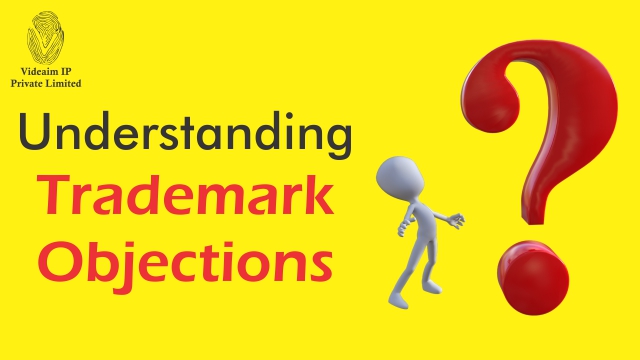
Understanding Trademark objections are important to avoid unnecessary delays and get a Trademark registered in quick time.
Trademark objections occur when a trademark application is initially examined by a trademark office and certain issues are identified that could prevent the registration of the trademark.
These issues can vary based on the jurisdiction and trademark laws, and some of the common reasons for trademark objections are as follows:
Procedural Deficiencies: Such deficiencies are related to drafting and filing of application. Common clerical mistakes like category of applicant, supporting documents, blurred uploaded image, etc. are deficiencies in a Trademark application.
Likelihood of Confusion: This is a key objection where the trademark examiner believes that your proposed trademark is too similar to an existing registered trademark for similar goods or services.
As per Indian Jurisdiction, under Section 11(1) of the Trade Marks Act 1999, which states that the applied Trademark is identical with /similar to earlier trademarks on record, as mentioned in the Examination report and by similarity of marks as well as similarity of goods and services covered under such marks, there exists a likelihood of confusion in the mind of public.
Descriptiveness: If the trademark is considered too descriptive of the goods or services it represents, it might be rejected. Trademarks are meant to be distinctive, so overly descriptive terms might be refused.
As per Indian Jurisdiction, under Section 9 of the Trade Marks Act 1999, which prescribes “absolute grounds for refusal” Marks which are not “capable of distinguishing” the goods/services of one person from those of another person are devoid.
Generic Terms: Generic terms that describe the product or service itself are typically not eligible for trademark registration. Examples like “strong hold” clubbed with an adhesive product or “magic masala” clubbed with a food product, would fall in this category and as such not allowable in respect of any goods or service.
Prohibited Content: Trademarks compromises or contains offensive, immoral, or scandalous matter will be objected. Further, any Trademarks contains or comprises any matter likely to hurt the religious susceptibilities of any class or section of the citizens will be objected.
Geographical Indications: If the trademark contains place name or figurative marks indicating geographical origin that might mislead consumers about the origin of the goods or services, it could be objected.
Conclusion
The reply to trademark objection reply in India is known as trademark examination reply or response to office action. Reply to objections must be filed within 30 days from the receipt of the trademark examination report, and failing to do so will render the trademark application as abandoned by the Trademark Registry.
If you’re facing a trademark objection, it’s recommended to consult with a legal professional who specializes in trademark law to navigate the process effectively.
How Videaim IP can help you dealing with trademark objections?
Keep in mind that trademark law are complex, and seeking advice from a qualified trademark attorney is recommended when dealing with trademark objections.
We at VideaimIP, have experienced trademark attorneys that are already serving many businesses through the trademark registration process, protection strategies, and enforcement actions in India as well as obtaining trademark protection in multiple countries.
Do you want to discuss more about trademark objection reply in India, Please feel free to contact us or Email your queries at info@videaimip.com and videaimip@gmail.com
